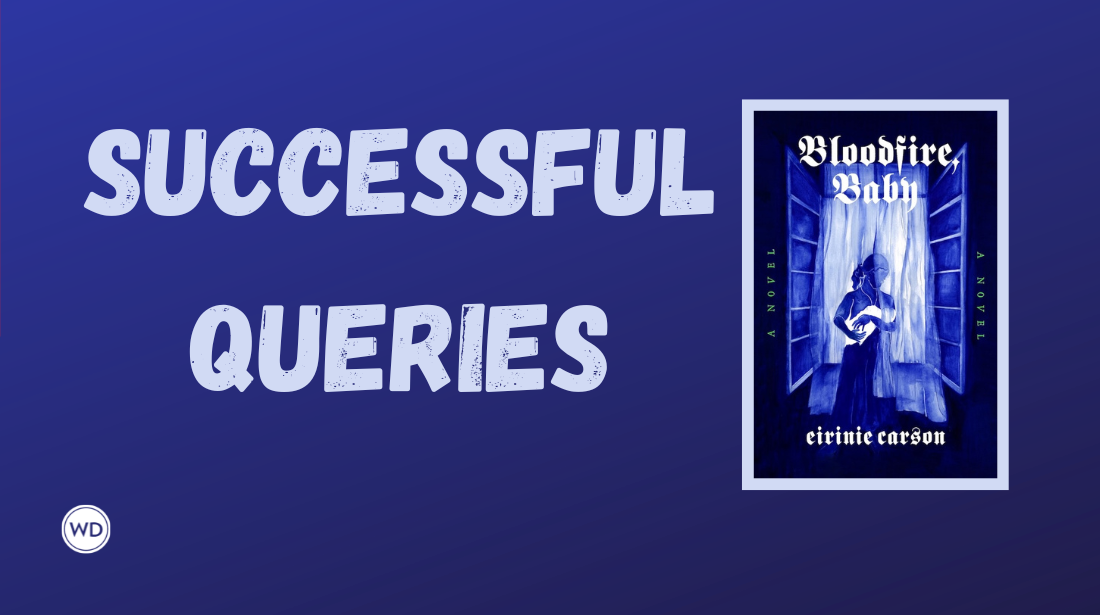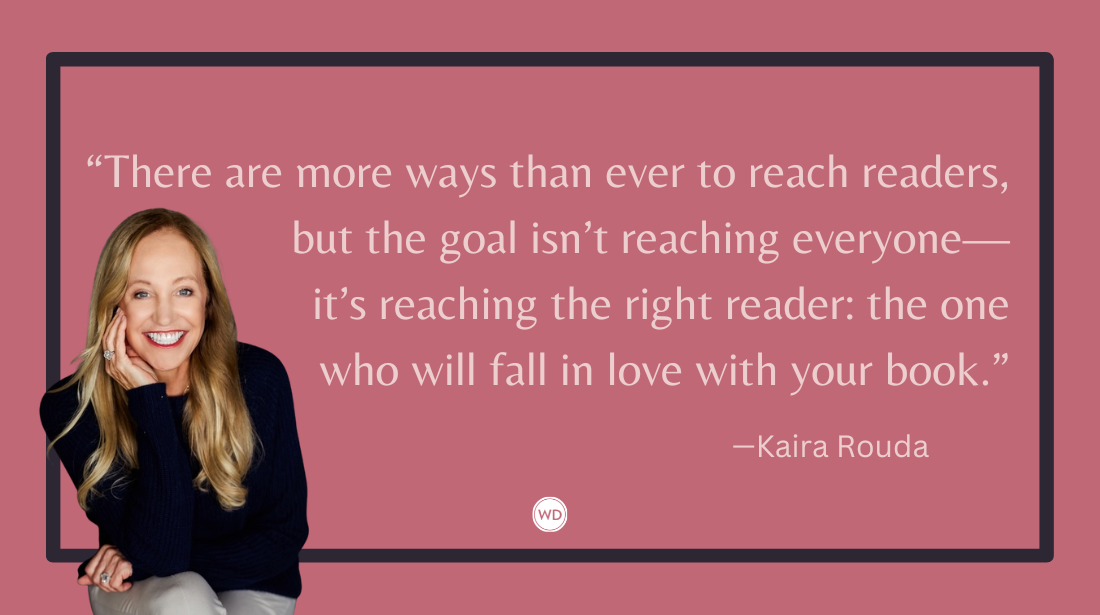Favors to Do for Your Future Author Self
Author Kelli Estes shares more than 25 different favors that writers can do for their future author selves both before and after publication.
No matter where you are on your publishing journey, there are actions you can take now to make it easier on yourself down the road and that set your book up for success. Incorporate these as part of your daily habits, and you’ll thank yourself down the road.
While you are writing, before your book is published:
- Attend author events. Pay attention to what you like and don’t like. Take notes on a document titled “Events” so when it’s your turn, you’ll already have a curated list of tips.
- Create an organized digital file storage system along with file naming rules. Down the line you may be looking for a document and you’ll be grateful you know where to find it.
- Backup everything—on the cloud and/or on an external hard drive. End each writing session with a backup.
- When doing research, take photos and videos of setting locations and items of inspiration for future social media posts and newsletter behind-the-scenes features. Store everything in one carefully named folder on your computer.
- Write your “back cover blurb” right from the start. It will help you stay focused on the main idea and hook of your story. Revise as needed until the manuscript is complete and then use it in your query letters.
- From the moment you start a manuscript, keep a list of your promotion ideas: affiliate groups, article and blog post topics, media outlets that would be a good fit, bookstores to contact, etc.
- Keep a file of everything you delete from your manuscript in case you decide to add something back in or for a newsletter freebie—readers love deleted scenes.
- Ignore the voices telling you that “X isn’t selling,” or “readers don’t like Y.” Write the book you want to write. Go into a bubble and write from your heart, without wondering how good it is or who’s going to read it. Worry about all that once the first draft is finished. Your unique voice is what readers will connect with most.
- If you write nonfiction, you already keep a bibliography of your sources, but fiction writers should do this, too. You may need to refer back to something during revisions, find a particular quote or item of interest to share in a newsletter, or you may want to share the entire bibliography with readers so they can investigate the subject on their own.
- Read as much as possible in your genre. Keep a list of comp titles and authors to approach about providing an endorsement for your book. Note what you liked about their book so you can personalize your email to them, as well as why a blurb from this author would help your book.
- Get to know your local booksellers. Attend their events. Buy from their stores.
- Collect bonus content to add to your website once your book is published, including a glossary, book club discussion questions, author Q&A, character family tree, recipes of dishes mentioned in the story, playlists, a deep dive into a unique aspect of your story’s setting or culture, maps, and so much more.
- Never bad mouth other authors, agents, editors, bookstores, or publishers online. Be positive and supportive. Always.
- Don’t rush. Do multiple rounds of revisions. Have beta readers give you feedback. Revise again. And then again. Don’t submit until the manuscript is the absolute best you can make it.
- Be professional on social media. Only send friend requests to agents and editors who are sharing industry information, and pay attention to their preferences to learn who is a good fit for your work. If their content includes pictures of their kids or other aspects of their personal lives, skip the request. You don’t want to come across as creepy.
- Take a class on anything you need to become a better small business owner, social media promoter, salesperson, speaker…any of the many hats an author must wear.
Once you have a contract, but before your publication date:
- Maintain a Master Document for each of your books with info you’ll need to refer to often. Include the back cover blurb, cover images, buy links for your book in each format and on all platforms (shortened), your ISBN number(s), all review quotes you receive, author bio, author photo, links to your social media, link to your Amazon author page, link to your Goodreads author page.
- Read your finished book, or have a trusted friend read it, and flag quotes that would be good to highlight in social media posts and as pull quotes on your website and/or newsletters.
- Contact the people on your Promotions list. Tell them about your book, its pub date, back cover blurb, cover image, your bio, and why you think they and/or their followers would be interested in your book. Share your availability for interviews or events and how to contact you. Offer to send them an Advance Reader Copy.
- Create a calendar for the months leading up to publication for social media posts (including what, exactly, you will post), and newsletters (don’t forget behind-the-scenes content and freebies that will add value for subscribers so your newsletters aren’t only saying, “buy my book.”)
- Create and post to your website all the bonus content that you collected during the writing stage to add value to your readers’ experience.
- Revise and format a deleted scene, or other content, and add it as a lead magnet (a.k.a. freebie, opt-in) for your newsletter sign-up.
- As reviews come in, add them to your website and to your Master document.
- Visit your local bookstores. Consider taking an Advance Reader Copy or, at minimum, a postcard or bookmark with your book’s cover image, publication information, your bio, and your contact information. Talk to the booksellers about your book and your availability for signings and events.
After publication:
- Let go of all expectations you have for your book. It is now out of your control. Continue to promote it but move forward with your next project.
- If talking about your book makes you nervous, remember that you are at the event in service to the audience. Be: entertaining (make them laugh), educational (teach them something they didn’t already know), or inspiring (share something that makes them leave with ideas and dreams swirling around in their minds). Accomplish at least one on that list and you’ll be great!
- Revisit all action items from “Before you are published” above.
- Update your Master document and website with every link you receive: coverage/reviews of the book, interviews, articles.
- After every event, send a thank you note to the organizer.
Whether you do all of these, or just a few, you will thank yourself one day down the road by being organized and prepared for your career as a successful published author.
Check out Kelli Estes' Smoke on the Wind here:
(WD uses affiliate links)
Kelli EstesAuthor
Kelli Estes is the USA Today bestselling author of The Girl Who Wrote in Silk, which has been translated into eleven languages, was the recipient of the Pacific Northwest Writers Association Nancy Pearl Book Award and the Women’s Fiction Writers Association STAR Award, and is currently under option for film/TV; and Today We Go Home, a nationwide Target Book Club pick. Kelli is passionate about stories that show how history is still relevant to our lives today. Her lifelong love of Scotland has her learning the Scottish Gaelic language and the Scottish fiddle (both badly, but she’s working on it). She has walked three of Scotland’s long-distance trails (so far) and is currently planning the next. Kelli lives in Washington State with her husband and two sons. Her new novel Smoke on the Wind is available now from Lake Union.
Related Stories









